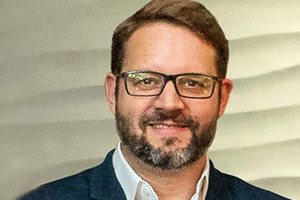Interview with one of IEC’s new Young Egg Industry Leaders

Poultry World’s Tony McDougal caught up with Bastiaan Schimmel, one of the IEC’s new Young Egg Industry Leaders.
Can you tell me a little about your background and how you got into poultry?
Born in Damascus, Syria, where my father was a commercial/technical manager for the Dutch coop Hypeco for the Middle East area. My mother’s family lived in the area due to my grandfather’s work at the Dutch aircraft manufacturer, Fokker. During my grade-school years we all moved back to the Netherlands where my father had the opportunity to move to the United States to manage the Hypeco USA operation in 1989. Unfortunately in 1991 Hypeco closed its doors but my father was able to pick up the pieces and start Centurion Poultry. From that time, the start of the family business, we all got involved in poultry.
In 2002, I completed my B.Sc at the University of Georgia in Agricultural Economics and continued my education in Wageningen University in the Netherlands completing my M.Sc in Agricultural Economics and Policy in 2004. From 2004-9, I worked as area manager for the Middle East and Latin America for Koudijs Feed BV, the export organisation for De Heus in India, but at the same time was also invited to come back and support the family business. Always intrigued by what my father had built over the years, I decided to join him in developing the Centurion business further. We established Tetra Americana at the time, of which I became managing director, responsible for distribution of TETRA genetics from Babolna TETRA out of Hungary for all of the Americas.
Read also: Young egg leaders on a mission
Tell me a little about your work with Centurion Poultry and the company’s work?
Centurion Poultry is an independent, family-owned, hatchery and commercial breeder business. Centurion supplies day old chicks throughout the US as well as commercial breeding stock. Since 2008, we have worked closely with Babolna TETRA out of Hungary. Through our Pureline Genetics Division we also cater to the speciality markets for both meat-type and speciality egg layers. After several involved in various parts of the operational management of our company. I currently manage the sales and marketing side of our business.
What are you hoping to get out of the IEC’s Young leaders programme?
I believe the Young Leaders Programme of the IEC offers a unique opportunity to gain in-depth understanding of the policy drivers of our industry. I expect that my 2 years at the Young Egg Leaders (YEL) will allow me to get a good understanding on how the IEC is able to influence our everyday work at our farms and businesses. Secondary, but always fascinating to me, whenever one is involved in a multi-national organisation such as the IEC and YEL there is often much we can learn from others in how they address similar challenges we all face in different parts of the world.
What do you think young people can add to the global industry?
Allowing the younger professionals involved in the industry to play a role in influential organisations like the IEC will allow the global egg industry to stay ahead of the fast changing dynamics in this world and remain relevant to the same younger consumers and stakeholders. By getting younger professionals involved early also allows for a more smooth transition where the younger professionals are able to gain valuable expertise and experience from those who are currently at the helm.
Which one issue do you think most needs addressing in the poultry industry from a global perspective?
There are certainly a variety of issues that could be addressed in the poultry industry, but from a truly global perspective, like every other industry, we must continue to look for ways to limit our adverse impact on our planet. A great example of this is the initiative that the IEC has undertaken together with the Consumer Goods Forum in bringing awareness to tackling soy-driven deforestation in Brazil’s Cerrado. Of course, this is only a small part of the complete picture, and certainly there are many initiatives that are already underway that fall under this larger topic, such as carbon-neutral firms and finding innovative solutions of the by-products coming out of our operations. Together, we will need to continue to look at relevant ways to be more efficient with adding our impact to the plant into that overall operational equation.












